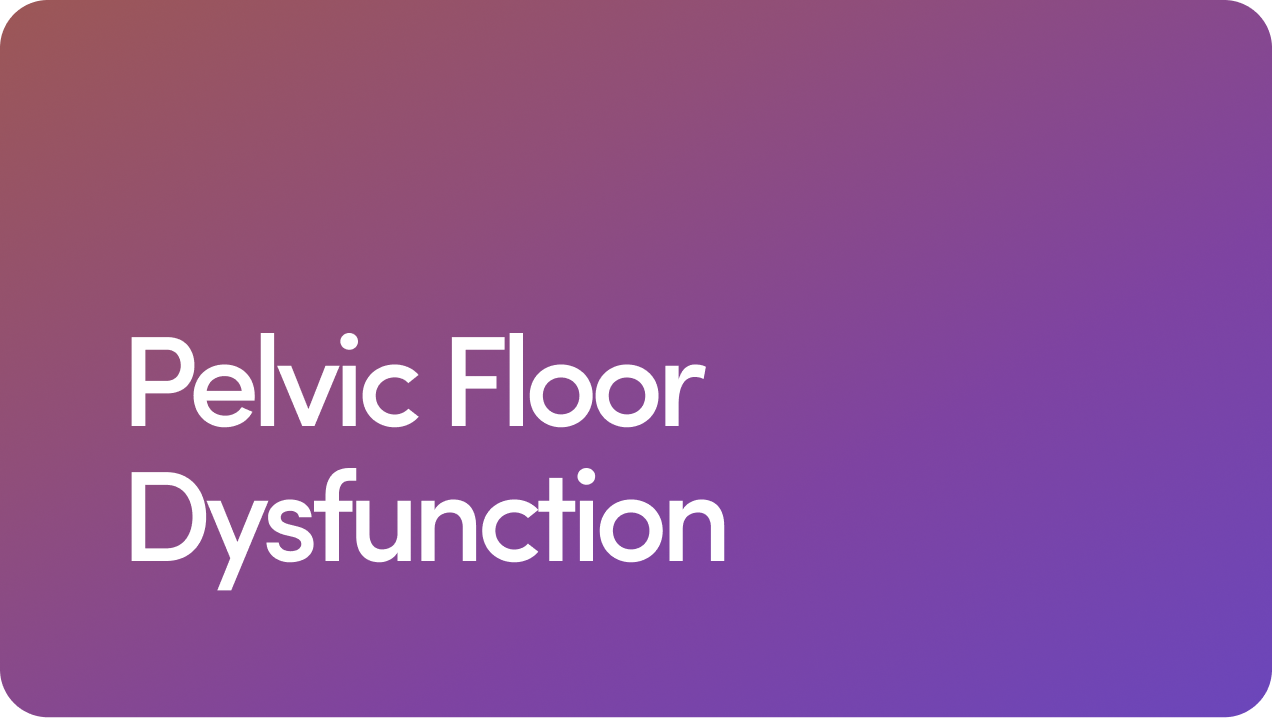Content
Enjoy sex like you used to
Viagra and Heart Disease: Is There a Risk?

Reviewed by Mike Bohl, MD, MPH, ALM
Written by Geoffrey C. Whittaker
Published 03/11/2019
Updated 04/15/2024
Erectile dysfunction medications such as sildenafil (the active ingredient in Pfizer’s Viagra®), tadalafil (Cialis®) and other ED drugs are thoroughly tested and viewed as safe to use for prescribing.
For most men in good health, these drugs are viewed as safe. If you have cardiovascular disease, hypertension or other heart health issues, however, it may not be safe to use ED medication. Maybe you've searched "high blood pressure Viagra" hoping for clarification. Unfortunately, it is a complicated topic; while Viagra may help some aspects of heart health, it can increase other risks.
Below, we’ve explained how ED medications like sildenafil work and their effects on the cardiovascular system. We’ve also looked into what you can do to treat erectile dysfunction if you have a cardiovascular health issue, or if you’ve previously suffered from a heart attack or other cardiovascular event.
Content
How ED Medications Work
All oral erectile dysfunction medications belong to a class of drugs called PDE5 inhibitors. They work by inhibiting the enzyme phosphodiesterase type 5, which is responsible for controlling blood flow to the erectile tissues inside the penis.
Viagra is no different, and it affects the flow of blood through parts of the body.
Erections are all about blood flow. When you’re sexually aroused, more blood begins to flow to your penis, creating a firm, enlarged erection that allows you to have sex.
By inhibiting PDE5, ED medications make it easier for blood to flow to your penis, allowing you to get hard and stay hard during sex.
Most oral ED medications start working quickly and produce a noticeable change in sexual function within one hour.
One common misconception is that ED medications make your penis hard all the time, even if you aren’t sexually aroused.
This isn’t accurate. While ED medications do make it easier to get an erection when you feel in the mood for sex, they don’t have any known effect on the psychological side of sexual arousal and won’t cause you to get an erection if you aren’t sexually stimulated.
Is Viagra Good for Heart Health?
Most ED medications, including Viagra, are safe for men with heart disease when used under the guidance of a healthcare professional. If you have heart disease, hypertension or another cardiovascular health issue, however, there are some complications worth knowing about; one risk of Viagra use along with other medications is causing sudden low blood pressure.
By targeting PDE5, ED medications relax the blood vessels that supply blood to your penis and make it easier to get and maintain an erection. They can also cause blood vessels in other parts of your body to relax. For example, a similar effect can occur in your lungs, where the pulmonary arteries — the blood vessels that are responsible for transporting blood from the heart to the lung capillaries — also dilate.
This increase in blood vessel diameter can cause a reduction in blood pressure. For this reason, some PDE5 inhibitors are used to treat pulmonary arterial hypertension — a form of high blood pressure that affects the blood vessels in the lungs.
Is Viagra Bad for Your Heart?
So, how does all this affect your heart health? Although PDE5 inhibitors are safe for most men, when they’re used with medications called nitrates and certain other medications, they can cause a severe drop in blood pressure that may be dangerous. So the best answer to “is sildenafil bad for your heart” is simply: it can be if used incorrectly.
Nitrates are commonly prescribed to treat chest pain. Your healthcare provider may prescribe a nitrate if you have angina (chest pain) or if you have reduced blood flow caused by coronary heart disease.
Medications That Can Interact With ED Drugs
Nitrates and related medications that can interact with ED drugs include nitroglycerin, isosorbide dinitrate and isosorbide mononitrate.
Other medications that can interact with ED drugs include alpha-blockers and non-nitrate drugs used to control high blood pressure. Some recreational “poppers,” which contain nitrites, can also interact with ED medications.
To put this potential drop in blood pressure into perspective, consider that Viagra can cause a temporary maximum reduction in blood pressure of around 8.4/5.5 mmHg.
When the ED medication Viagra is combined with nitroglycerin, this decrease in blood pressure can be much greater.
In short, if you use nitrates to treat angina or other heart health issues, you cannot and should not take ED medication.
If you have heart disease and erectile dysfunction and wish to learn more about treatment options, you should speak to your healthcare provider about safe treatments.
Even if you don’t use nitrates, you should be extremely cautious about taking ED medication if you’re affected by heart disease.
The FDA recommends caution in men who’ve suffered from cardiovascular events in the past six months. These include myocardial infarction (heart attack), stroke and other disturbances of the heart’s rhythm and function.
Men with uncontrolled hypertension, clinically low blood pressure or a history of congestive heart disease and/or angina should also be cautious and speak to their healthcare provider before taking ED medications.
Your healthcare provider will be able to assess your cardiovascular function and, if appropriate, prescribe a medication that’s suitable for you. If ED medication isn’t appropriate, they may also be able to suggest an alternative treatment.
If you’ve had a heart attack, it’s important to talk to your healthcare provider before you use any type of medication to treat ED, including oral PDE5 inhibitors.
Most of the time, you should be able to resume your usual sex life after successfully recovering from a heart attack. If your healthcare provider clears it, all oral ED medications, including sildenafil, tadalafil, vardenafil and avanafil, should be safe to use as prescribed.
Interestingly, some research suggests that using ED medication after a heart attack may reduce your risk of being hospitalized for heart failure in the future.
There’s no “best” ED medication for use after a heart attack. As always, it’s important to talk to your healthcare provider and work out the most appropriate medication for you based on your needs, lifestyle and expectations.
I Have Atrial Fibrillation Can I Use Viagra?
If you have a history of atrial fibrillation or coronary artery disease, you should talk to a cardiologist or other healthcare professional before taking Viagra.
While oral medications like sildenafil may be the most well-known form of treatment for erectile dysfunction, they’re not the only options available.
Other options for treating ED include injectable medication and psychotherapy for issues such as psychological erectile dysfunction. Certain lifestyle changes, such as quitting smoking, can also improve your erectile function naturally.
Other ED Medications
In addition to oral PDE5 inhibitors, other medications are available to treat ED. One medication that’s often used is alprostadil — an injectable medication that works by relaxing the local blood vessels and smooth muscle tissue inside the penis.
Alprostadil is also available as a suppository, which is inserted into the urethra. Your healthcare provider may prescribe alprostadil if other ED medications aren’t suitable for you to use or don’t produce the intended effects.
Lifestyle Changes
Although lifestyle changes alone aren’t always enough to treat severe ED, changing your habits can often strengthen your erections and improve your sexual performance. Try the following tips and lifestyle changes for better erections and sexual performance:
Quit cigarette smoking
Limit your alcohol intake or stop drinking alcohol
Avoid using illicit drugs
Get regular physical activity and exercise
Maintain a healthy body weight
Our list of natural ways to protect your erection goes into more detail about how you can reduce the severity of ED naturally.
Use Therapy to Treat Psychological ED
Many cases of ED are psychological, meaning they’re caused primarily by mental or emotional issues rather than physical ones.
If your erectile dysfunction has a psychological cause, you may benefit from counseling to work on anxiety, stress or depression. You can talk to a counselor locally or online using our mental health services.
Erectile dysfunction can have a serious impact on both your sexual function and your quality of life. Luckily, even if you have heart disease or specific cardiovascular risk factors, ED is almost always a treatable condition.
Patients with cardiovascular disease are often concerned about taking phosphodiesterase type 5 medications like Viagra.
Side effects of using medications like Viagra, Cialis, Stendra or Levitra can sometimes include chest pain and sudden drops in blood pressure when combined with other medications. They can also negatively interact with nitrates.
If you’re affected by erectile dysfunction, it’s best to talk to your healthcare provider about your options. You can also access our full range of FDA-approved ED treatments online, following a private online consultation with a licensed healthcare provider.
Worried your physical health may be contributing to ED? Our guide to the most common causes of erectile dysfunction explains how ED usually develops, as well as the steps that you can take to improve your erections and sexual health.
10 Sources
- Definition & Facts for Erectile Dysfunction. (2017, July). Retrieved from https://www.niddk.nih.gov/health-information/urologic-diseases/erectile-dysfunction/definition-facts
- Dhaliwal, A. & Gupta, M. (2021, June 25). PDE5 Inhibitors. StatPearls. Retrieved from https://www.ncbi.nlm.nih.gov/books/NBK549843/
- Abrams, J. (1995, February 27). The role of nitrates in coronary heart disease. Archives of Internal Medicine. 155 (4), 357-64. Retrieved from https://pubmed.ncbi.nlm.nih.gov/7848018/
- Are erectile dysfunction pills safe for men with heart disease? (2019, July 30). Retrieved from https://www.health.harvard.edu/mens-health/are-erectile-dysfunction-pills-safe-for-men-with-heart-disease
- VIAGRA® (sildenafil citrate) tablets, for oral use. (2014, March). Retrieved from https://www.accessdata.fda.gov/drugsatfda_docs/label/2014/20895s039s042lbl.pdf
- Facts About Hypertension. (2021, September 27). Retrieved from https://www.cdc.gov/bloodpressure/facts.htm
- Can I take ED drugs after a heart attack? (2021, March 30). Retrieved from https://www.health.harvard.edu/mens-health/can-i-take-ed-drugs-after-a-heart-attack
- Andersson, D.P., et al. (2017, August). Association between treatment for erectile dysfunction and death or cardiovascular outcomes after myocardial infarction. Heart. 103 (16), 1264-1270. Retrieved from https://pubmed.ncbi.nlm.nih.gov/28280146/
- Alprostadil Urogenital. (2018, February 15). Retrieved from https://medlineplus.gov/druginfo/meds/a695022.html
- Treatment for Erectile Dysfunction. (2017, July). Retrieved from https://www.niddk.nih.gov/health-information/urologic-diseases/erectile-dysfunction/treatment
Editorial Standards
Hims & Hers has strict sourcing guidelines to ensure our content is accurate and current. We rely on peer-reviewed studies, academic research institutions, and medical associations. We strive to use primary sources and refrain from using tertiary references. See a mistake? Let us know at [email protected]!
This article is for informational purposes only and does not constitute medical advice. The information contained herein is not a substitute for and should never be relied upon for professional medical advice. Always talk to your doctor about the risks and benefits of any treatment. Learn more about our editorial standards here.
Mike Bohl, MD, MPH, ALM
Education
Bachelor of Arts, Egyptian and Ancient Western Asian Archaeology - Brown University | College, 2011
Doctor of Medicine - Brown University | Warren Alpert Medical School, 2017
Master of Public Health - Columbia University | Mailman School of Public Health, 2018
Master of Liberal Arts, Journalism - Harvard University | Harvard Extension School, 2022
Master of Science, Healthcare Leadership - Cornell University | Weill Cornell Graduate School of Medical Sciences, 2024
Master of Business Administration - Cornell University | Samuel Curtis Johnson Graduate School of Management, 2024
Training
Internship - NYU Grossman School of Medicine | Internal Medicine Residency—Community Health Track, 2019
Medical License
New York, 2019
Certificates & Certifications
Certified in Public Health - National Board of Public Health Examiners, 2018
Medical Writer Certified - American Medical Writers Association, 2020
Editor in the Life Sciences - Board of Editors in the Life Sciences, 2020
Certified Personal Trainer - National Academy of Sports Medicine, 2022
Certified Nutrition Coach - National Academy of Sports Medicine, 2023
Board Certified Medical Affairs Specialist - Accreditation Council for Medical Affairs, 2023
Certificate of Advanced Education in Obesity Medicine - Obesity Medicine Association, 2025
Regulatory Affairs Certification - Regulatory Affairs Professionals Society, 2025
Affiliations & Memberships
Specialties & Areas of Focus
General Practice
Previous Work Experience
Medical Expert Board Member - Eat This, Not That!, 2021–
Director Scientific & Medical Content - Stealth Biotech PBC, 2023–2024
Director, Medical Content & Education - Ro, 2021–2023
Associate Director, Medical Content & Education - Ro, 2020–2021
Senior Medical Writer - Ro, 2019–2020
Medical Editor/Writer - Sharecare, 2017–2020
Medical Student Producer - The Dr. Oz Show, 2015–2016
Research Affiliate - University Hospitals of Cleveland, 2013–2014
Publications & Research
Title: Biomechanical evaluation of a novel suturing scheme for grafting load-bearing collagen scaffolds for rotator cuff repair
Published in: Clinical Biomechanics
Date: 2015
URL: https://www.clinbiomech.com/article/S0268-0033(15)00143-6/abstract
Title: Pelvic incidence and acetabular version in slipped capital femoral epiphysis
Published in: Journal of Pediatric Orthopaedics
Date: 2015
Title: Relationship between pelvic incidence and osteoarthritis of the hip
Published in: Bone & Joint Research
Date: 2016
URL: https://boneandjoint.org.uk/Article/10.1302/2046-3758.52.2000552
Title: Effects of PDGF-BB delivery from heparinized collagen sutures on the healing of lacerated chicken flexor tendon in vivo
Published in: Acta Biomaterialia
Date: 2017
URL: https://www.sciencedirect.com/science/article/pii/S1742706117305652
Media Mentions & Features
Dr. Bohl’s medical expertise is regularly featured in consumer health media:
Eat This, Not That!: Contributor and Medical Expert Board Member on nutrition and wellness topics
The Dr. Oz Show: Behind-the-scenes contributor to Emmy Award-winning health segments
Sharecare: Public-facing health writer, simplifying complex medical issues for millions of readers
Why I Practice Medicine
Dr. Bohl developed a passion for medical content while working at The Dr. Oz Show. He realized that, through the media, he could bring important health information to the lives of many more people than he would be able to working in a doctor’s office.
Hobbies & Interests
Biking, resistance training, sailing, scuba diving, skiing, tennis, and traveling
Related Articles
Related Conditions
 Erectile Dysfunction
Erectile Dysfunction
 Premature Ejaculation
Premature Ejaculation
 Low Testosterone
Low Testosterone
 Retrograde Ejaculation
Retrograde Ejaculation
 Pelvic Floor Dysfunction
Pelvic Floor Dysfunction
 Anorgasmia
Anorgasmia